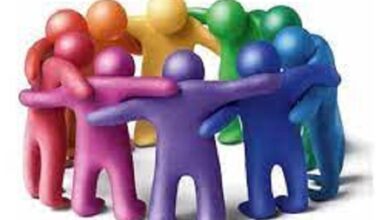Economics/Business
Economics
Economics is the social science that studies how individuals, businesses, governments, and societies allocate scarce resources to satisfy their unlimited wants and needs. It is concerned with the production, distribution, and consumption of goods and services, and the decisions and behaviors of individuals and institutions that shape these processes.
By reading the intensive articles of Englopedia.com you will grasp that it is a broad field that encompasses various branches and subfields, including microeconomics, macroeconomics, international economics, labor economics, behavioral economics, and many others. Microeconomics focuses on the behavior of individuals and firms, while macroeconomics looks at the overall performance of the economy, including issues such as inflation, unemployment, and economic growth. International economics examines the flow of goods, services, and capital across borders, while labor economics focuses on the behavior of workers and employers in the labor market.
Englopedia will make you aware that Economists use a range of tools and techniques, such as mathematical modeling, statistical analysis, and experimental methods, to study and analyze economic phenomena. They aim to understand how markets work, how individuals and institutions make decisions, and how public policies and institutions impact economic outcomes.
Through the leading articles of Englopedia you will realize that Economics has significant implications for individuals, businesses, governments, and societies, as it can inform decisions related to investments, production, taxation, trade, and social welfare policies. It is a crucial field of study for understanding the functioning and dynamics of modern economies and for addressing pressing global issues, such as inequality, climate change, and economic development.
-

Crisis management in companies its types and 14 steps to deal
Understanding the concept of crisis management In this article we will provide you the knowledge about Crisis management in companies…
Read More » -

How to improve the recruitment process and different strategies
Recruitment process In this article we will provide you the awareness How to improve the recruitment process and different strategies.…
Read More » -

What is Information security types pillars importance and objectives
Information Security Information security can be defined as the rules and techniques that are applied to keep certain information safe…
Read More » -

Human Resources sector Personnel Department structure and functions
Human Resources sector Human resources are the set of people, the human capital of an organization. HR is the sector that…
Read More » -

Design Thinking for HR it goals and 6 steps to implement and benefits
Design Thinking Design thinking seeks to empathize with problems in order to generate visionary solutions to solve them through a…
Read More » -

What is Behavioral mapping its benefits for company and usages
What is behavioral mapping Behavioral mapping is an HR resource to make the selection process more accurate and to improve…
Read More » -

Behavioral Training its importance Benefits and implementation and development
Behavioral Training Behavioral training develops socialization and self-knowledge skills in a company’s employees with the aim of improving the organizational…
Read More » -

Boolean search Operators and How is step by step of active search
What is Boolean search? In this article we will define you about Boolean search Operators and How is step by step…
Read More » -

What are HR Policies their values and vision and importance
What are HR Policies HR policies are a set of rules that aim to direct employees on how they should…
Read More » -

What is Emotional Salary importance benefits examples and application
What is Emotional Salary? Emotional salary is the set of motivational incentives that the company offers to employees that goes beyond…
Read More »